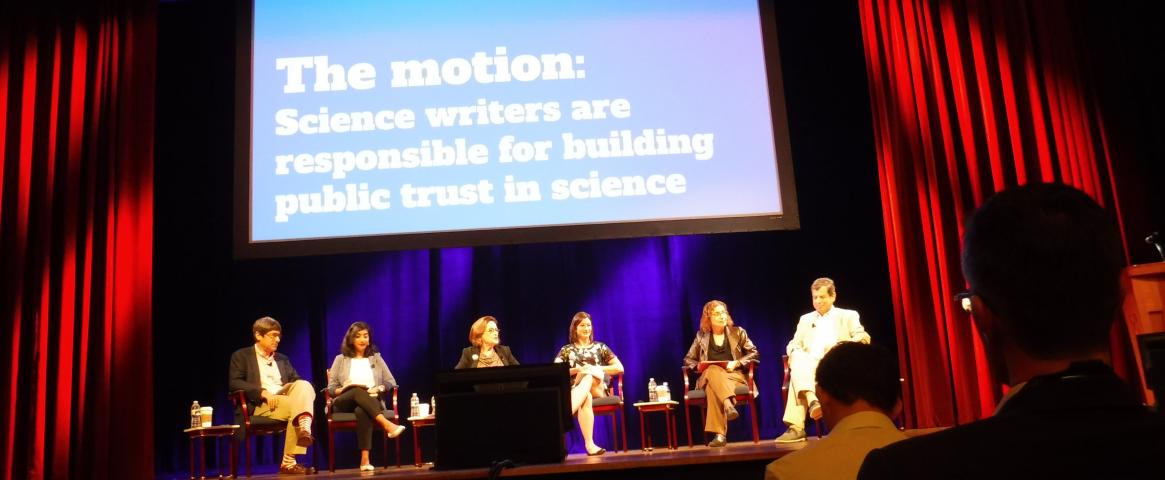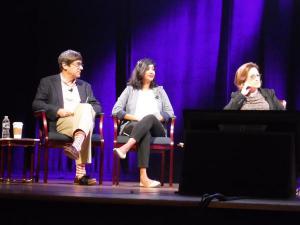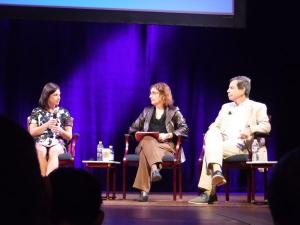By Dani Leviss
Cheerleader, critic, both, or neither. What is the role of the journalist, and more specifically, the science writer? This was the crux of the opening plenary debate at ScienceWriters 2018.
"The role is to empower people to make up their own minds," said Nidhi Subbaraman, science reporter for BuzzFeed News, in her team's opening statement. Later she added their job is to build trust in the press. Before the debate, however, a majority of the audience (137 people, 64%) voted in agreement with the motion that "Science writers are responsible for building public trust in science."Subbaraman's teammate on the against side was Richard Harris, science correspondent for NPR News. Their opponents: Rick Weiss, director of AAAS's SciLine, and Louise Lief, a freelancer and independent consultant. Lief said, "I'm an outside observer of the world of science, but I'm not in it," and later elaborated public information officers and journalists "sit in a critical position as a bridge." To her, building public trust is not a priority for scientists. She implored that the journalist's role is to ensure the accountability of science, pointing out downsides and benefits.
During the question session, co-moderator Cristine Russell asked the debaters about where science writers should fall on the spectrum of cheerleading to critic. Harris explained that in the 1950s, science writing was very much about cheerleading science, but today it's more balanced. "It's a constant struggle to strike that balance," he said.
Weiss later responded that it's not about trusting anyone's particular claims in science, but science writers should build trust in the process of science. "Trust science as a means to how the world works," he said.
A highlight of the debate was the thought experiment posed by audience member Jill Adams. She asked the debaters if they would be for or against the motion if she changed it to read "Political writers are responsible for building public trust in democracy." She quickly left the mic and the debaters to discuss her question. The audience laughed and clapped, and it was a mic-drop moment, which co-moderator Kelly Tyrrell appropriately mimed.Claiming that question was to be part of his closing statement, Harris expanded the thought experiment to business writers and business, sports writers and sports. Weiss, however, rebutted that the parallels are clever, though not quite the same. He explained that democracy is a system for getting along as a social species, but unlike science, it is not trying to get at an absolute truth.
Lief, in her closing statement, argued that both science writers and scientists should be building public trust, but that the former are better equipped to do so, as they are focused on "transparency, accountability, integrity of the scientific method, and science's impacts in the real world, good and bad."
Citing Weiss's argument that journalists should get the public engaged with science, Subbaraman rebutted in her closing that statement that she finds "greater value in enabling the public to understand the enterprise in full complete with conflicts and limitations."
After both teams campaigned for their side and rebutted each other's arguments, the voting flipped with the disagreement side receiving the most votes (151 people, 60%). Science writers in the audience demonstrated an openness to opposing perspectives and changing their beliefs given evidence and arguments.



